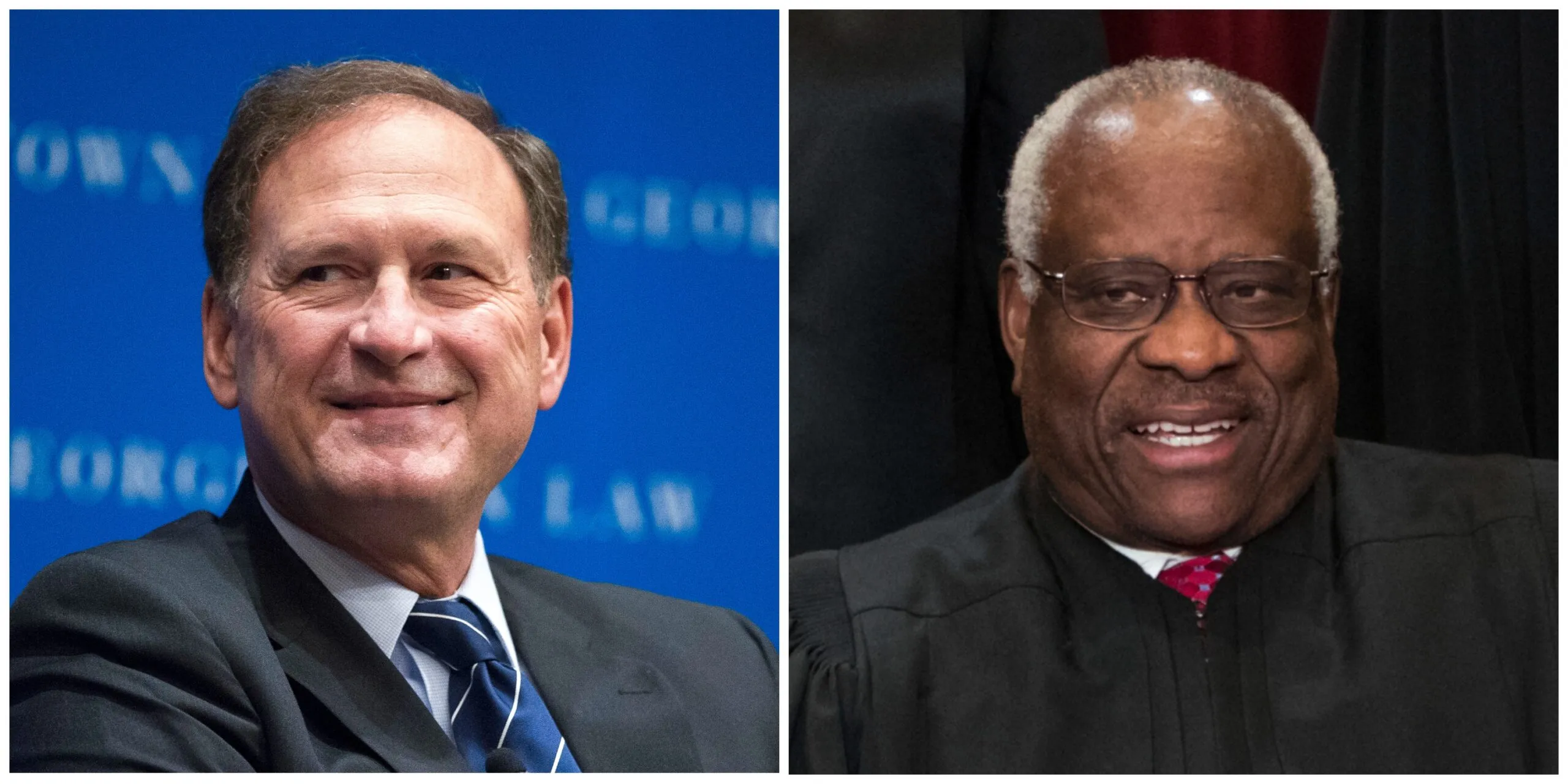Supreme Court Justice Samuel Alito‘s 2022 annual financial disclosure has been released after a delay due to the jurist requesting an extension on his filing.
Justices Clarence Thomas and Alito were given a 90-day extension by the Administrative Office of the U.S. Courts on June 7 to file their financial disclosure forms, while the seven other justices were able to submit their forms by the deadline.
CLARENCE THOMAS’S 2022 FINANCIAL DISCLOSURE RELEASED AFTER MONTHS OF ‘ETHICS’ PRESSURE

But unlike their colleagues, the pair of justices have faced repeated scrutiny by the Left, particularly from the outlet ProPublica. On April 6, ProPublica ran a report suggesting Thomas “should have disclosed his trips” taken decades ago with Crow, citing the advice of “ethics law experts.”
The outlet ran a separate report on June 20 suggesting Alito engaged in ethical impropriety in July 2008 when he went on a fishing trip in Alaska, prompting the justice to take matters into his own hands and issue a swift rebuke through a Wall Street Journal op-ed titled “ProPublica Misleads Its Readers.”
Alito’s filing showed he received “Non-Investment Income” from three sources last year, including $9,000 from teaching at Regent University School of Law, $15,000 from Duke Law School, and $5,250 from the Bolch Judicial Institute at Duke.
The form also showed two sources of reimbursements for the justice, including one from Duke between May 20 and 21 for “Lodging & Meals” and a stated purpose of teaching an “LLM program.” A second reimbursement came from Notre Dame Law School for the purpose of a “Religious Liberty Summit,” with items including “Transportation, Lodging, & Meals.”
Alito acknowledged in June that he had flown on a private plane on a vacation in 2008 to a commercial fishing lodge in Alaska, where he was hosted by Paul Singer, a hedge fund billionaire. Years later, Singer had business before the high court on several occasions.
In his op-ed, which preempted ProPublica’s report, he acknowledged the trip and stated: “It was and is my judgment that these facts would not cause a reasonable and unbiased person to doubt my ability to decide the matters in question impartially.”
Thomas and Alito said the gifts and travel they received prior to March of this year, when the Judicial Conference altered its rules about disclosing travel, did not need to be reported.
The guidance in effect until March did not call for reporting the travel with Crow from years past, according to attorney Elliot S. Berke, whose firm Thomas engaged to help file his disclosure. On March 14, the policymaking body behind federal courts declared that “transportation that substitutes for commercial transportation” would no longer be considered exempt from reporting requirements.
Berke said Thomas was adhering to guidance provided by now-Senior Judge Raymond Randolph, previously chairman of the Judicial Codes of Conduct Committee. Randolph himself attended the same fishing trip to Alaska with Alito.
The attorney added that “contemporaneous notes Judge Randolph took on May 8, 2006, [stated] ‘[p]ersonal hospitality — don’t have to report … private plane/lodge,’ upon seeking advice with judicial ethics staff about a trip he took to Alaska.”
Amid discussion by Democrats and left-leaning ethics hubs in Washington about a supposed need to impose a new ethics code on the Supreme Court, Alito made a bold decision last month by declaring Congress cannot regulate ethics on the high court.
CLICK HERE TO READ MORE FROM THE WASHINGTON EXAMINER
His colleague, Justice Elena Kagan, spoke out at the beginning of August, suggesting there is more that Congress could do to police ethics on the court but stating the justices are divided on how to proceed.
Read Alito’s 2022 disclosure form in full:
